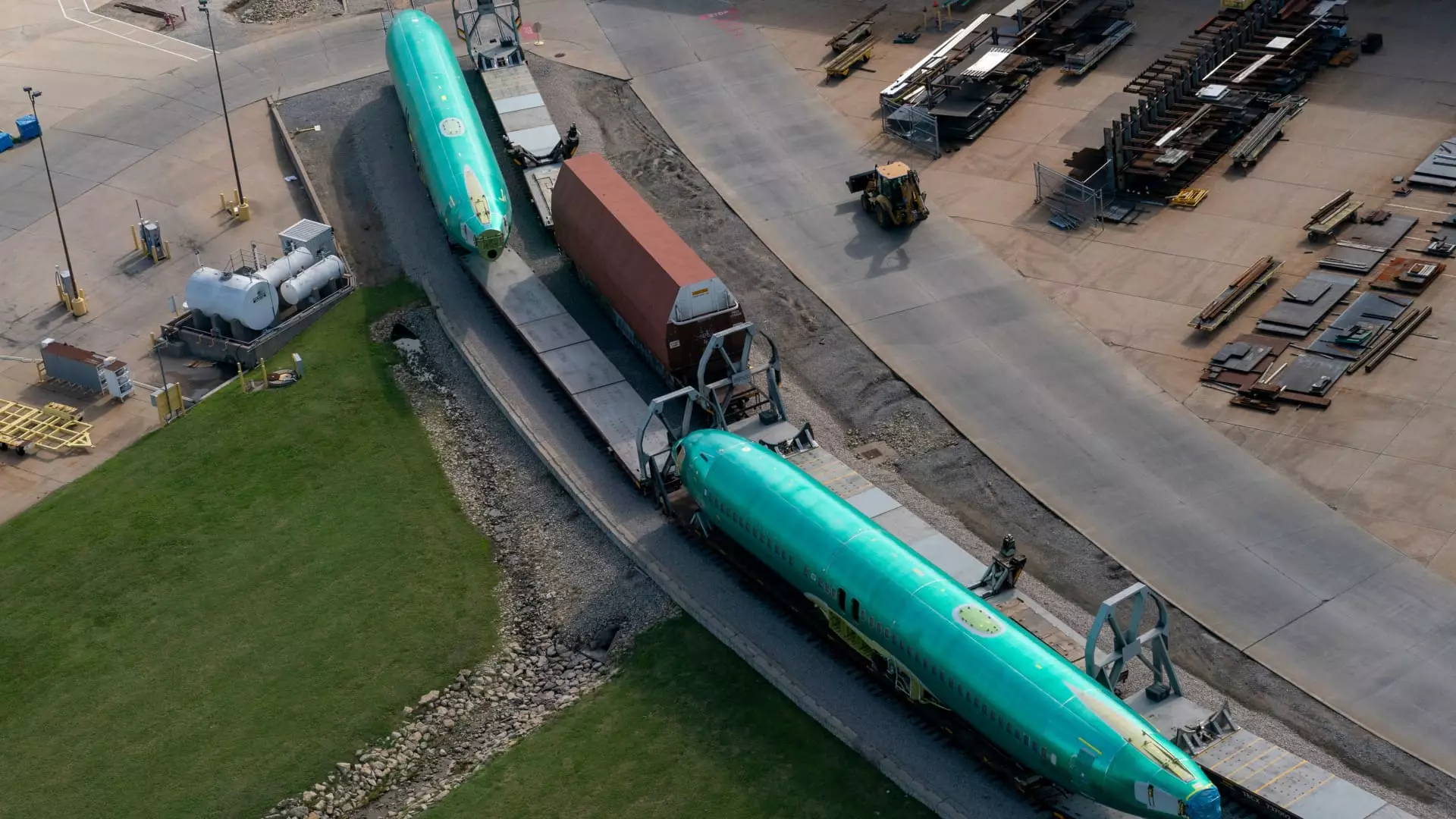The ongoing Machinists’ strike at Boeing is causing significant concern not only for the company itself but also for its extensive network of suppliers. Spirit AeroSystems, a key manufacturer of aircraft components, is staring down the barrel of potential mass furloughs or layoffs if the stalemate with the union extends past the critical deadline of November 25. The ramifications of this strike are profound and multifaceted, and they highlight the fragility of the aerospace supply chain that has only recently begun to stabilize after the disruptions of the COVID-19 pandemic.
At the heart of the situation are more than 32,000 Boeing machinists, who have taken a firm stance against a proposed labor contract, voting 64% against it. This decision has led to an extended work stoppage that has disrupted the production of nearly all Boeing aircrafts, with significant operations concentrated in Seattle. Spirit AeroSystems plays a crucial role in this ecosystem, providing fuselages for the 737 Max as well as other essential components. The current strike presents a red flag not only for Spirit but also for the entire aerospace industry, which thrives on seamless operations and timely production schedules.
Spirit AeroSystems has already signified its intention to furlough around 700 workers—an unfortunate decision impacting jobs in the company’s Wichita, Kansas, facilities. These furloughs, slated to last 21 days, could commence as early as next week. Meanwhile, the looming possibility of further employee reductions raises eyebrows about the long-term viability of Spirit’s operational capabilities amidst this uncertainty.
Despite indications that many suppliers have been hesitant to enact large-scale layoffs for fear of losing skilled labor they had been cultivating, the pressure on Spirit demonstrates the extent of the crisis. Boeing’s new CEO, Kelly Ortberg, has prioritized finding a resolution to the strike, but the weight of the situation is heavy. This isn’t merely an internal struggle; it’s a systemic threat to the aerospace supply chain that has seen a delicate recovery over the past few years. If Boeing continues in this precarious state, the larger industry will feel the tremors—Airbus and others are similarly grappling with supply pressures.
Adding another layer of complexity, Spirit has reported a disturbing third-quarter net loss of $477 million—more than double what it experienced the previous year. Coupled with Boeing’s pending acquisition of Spirit, this financial instability could have severe implications for both companies. Stakeholders are concerned that continued disruptions may not only worsen Spirit’s financial woes but also impact Boeing’s strategic outlook as it aims for a smoother operational trajectory.
With negotiations seemingly stalled, the urgent need for productive dialogues has never been greater. The workers’ union has signaled a readiness to return to the table, and Boeing must also consider the broader implications of an extended work stoppage. At stake is not only the workforce but also the health of an industry striving to overcome the shadows of the pandemic. As both companies navigate this turbulent period, the hope is that they can find a resolution that safeguards jobs, restores production, and sustains the vital connections that form the backbone of the aerospace supply chain. The outcome of these negotiations will undoubtedly be a focal point in the months to come, with repercussions that may extend beyond Boeing and Spirit to affect the entire aerospace ecosystem.

